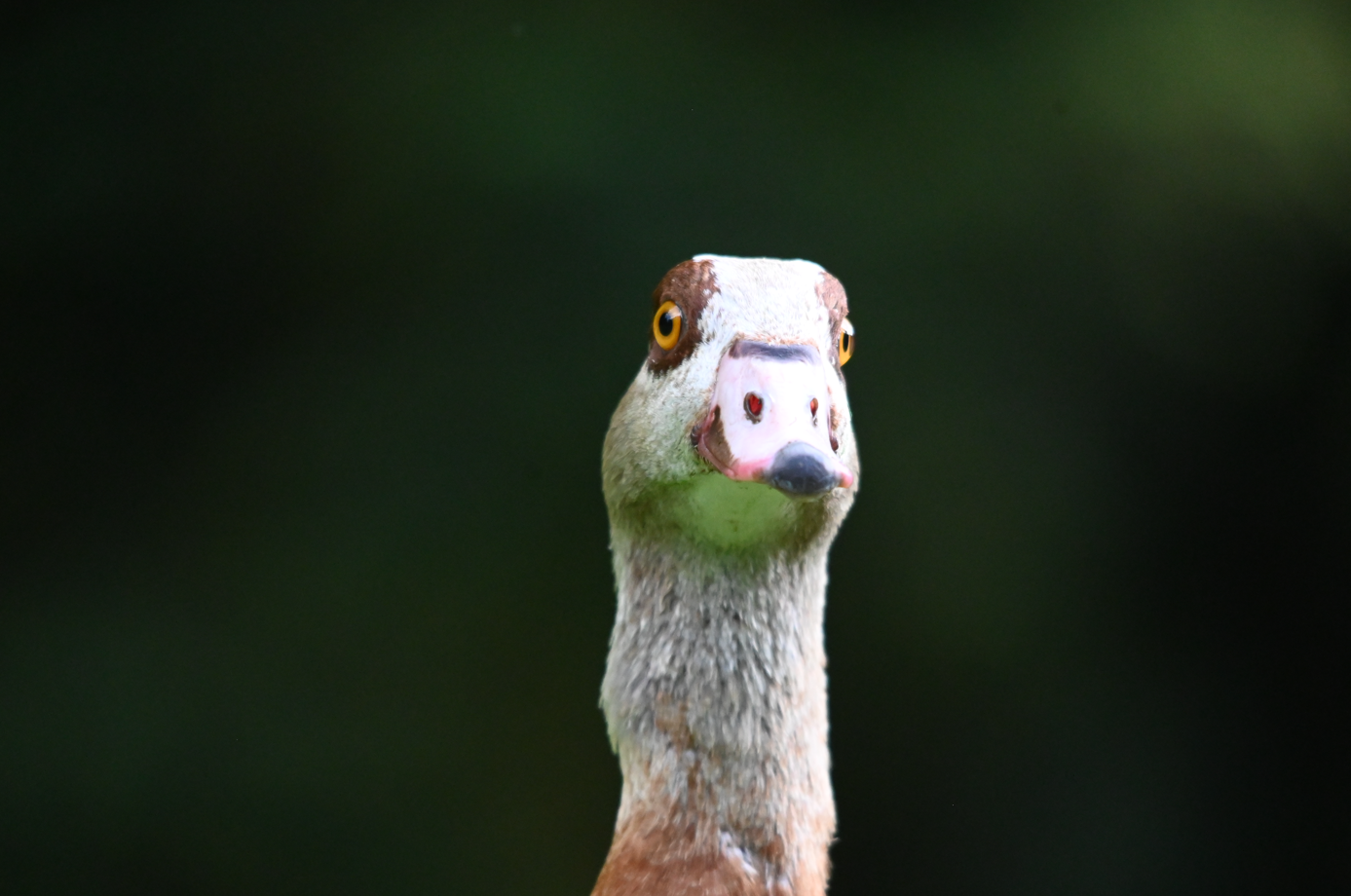👁️👄👁️
birding
A community for people who like birds, birdwatching and birding in general!
Feel free to share your photos and other birding-related content here. If a photo you post isn't yours, please credit the original creator! Additionally, it would be appreciated if the location of the sighting and a date were given when a photo or question is posted. You do not have to give the precise location, something like "Northern Idaho, June 2023" or even "North-Western US, June 2023" suffices.
The beak looks likes a little dogs face on its own.
Yeah, anatidae always have a little bonus subject in their bills, I like it
Looks like a machine gun
-- Sonia Sotomayor
Out of interest, is the green under its chin a result of trying to get light/histogram levels correct, or was it really "there". I often have trouble with over-exposed areas picking up a green or blue tinge when corrected.
It's actually really there in the sense that the grass the goose is standing on is very green and reflected off their chin! :)
I wondered the same for a second when I went through the pictures at home.
Thanks. What's worse, is that I lost quite a few attempts to this problem today: white gulls and the like, against dark backgrounds. Trying to remove over-exposure just leaves a vivid green discolouration,
Huh, interesting. I wonder where the difference is coming from. You use a Canon, right? Maybe that plays a role? But surely that would be more an issue of raw data interpretation.. Do you have any examples easily on hand?
I don't think it'd be an issue of sea birds, would it? Blue seas would tint things blue and, if (over-)corrected, orange, I'd assume..
Oh, right: I'm using a nikon z6ii with a sigma 150-500 mm lens.
It is indeed a Canon, and using Canon's DPP4 to correct the over-exposed whites using the RAW format of pictures. I really ought to research it properly, but I'm guessing that different colours (YGB) are reaching over-exposed to different degrees and getting capped. E.g. Blue is very over-exposed, Yellow is a bit over-exposed and Green is only barely over-exposed. Then when I try to bring them back to properly exposed "as one" with the histogram tool or brigtness slider, those caps and degrees are getting messed up, giving a colour balance in a manner that doesn't reflect the original and I get a green tinge.
That, or pay more attention to whites in frame!
Slow zoom, dial tone.
